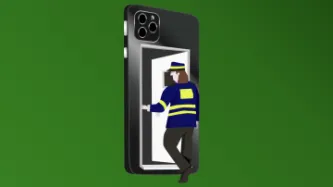Advanced Search
Content Type: Long Read
In June 2023, the UK government announced its proposal to expand its surveillance powers by, among others, forcing communications operators to undermine encryption or abstain from providing security software updates globally. Building on our response to the government’s plans, this piece explains why what they want to do puts every one of us at risk.
Why your trust (to technologies you use) matters
Surveillance and privacy are complex concepts to grasp – it’s part of the appeal to us at PI.…
Content Type: Explainer
What is hacking?
Hacking refers to finding vulnerabilities in electronic systems, either to report and repair them, or to exploit them.
Hacking can help to identify and fix security flaws in devices, networks and services that millions of people may use. But it can also be used to access our devices, collect information about us, and manipulate us and our devices in other ways.
Hacking comprises a range of ever-evolving techniques. It can be done remotely, but it can also include physical…
Content Type: Case Study
In Peru, you get asked for your fingerprint and your ID constantly - when you’re getting a new phone line installed or depositing money in your bank account – and every Peruvian person has an ID card, and is included in the National Registry of Identity – a huge database designed to prove that everyone is who they say they are. After all, you can change your name, but not your fingerprint.
However, in 2019 the National Police of Peru uncovered a criminal operation that was doing just that:…


